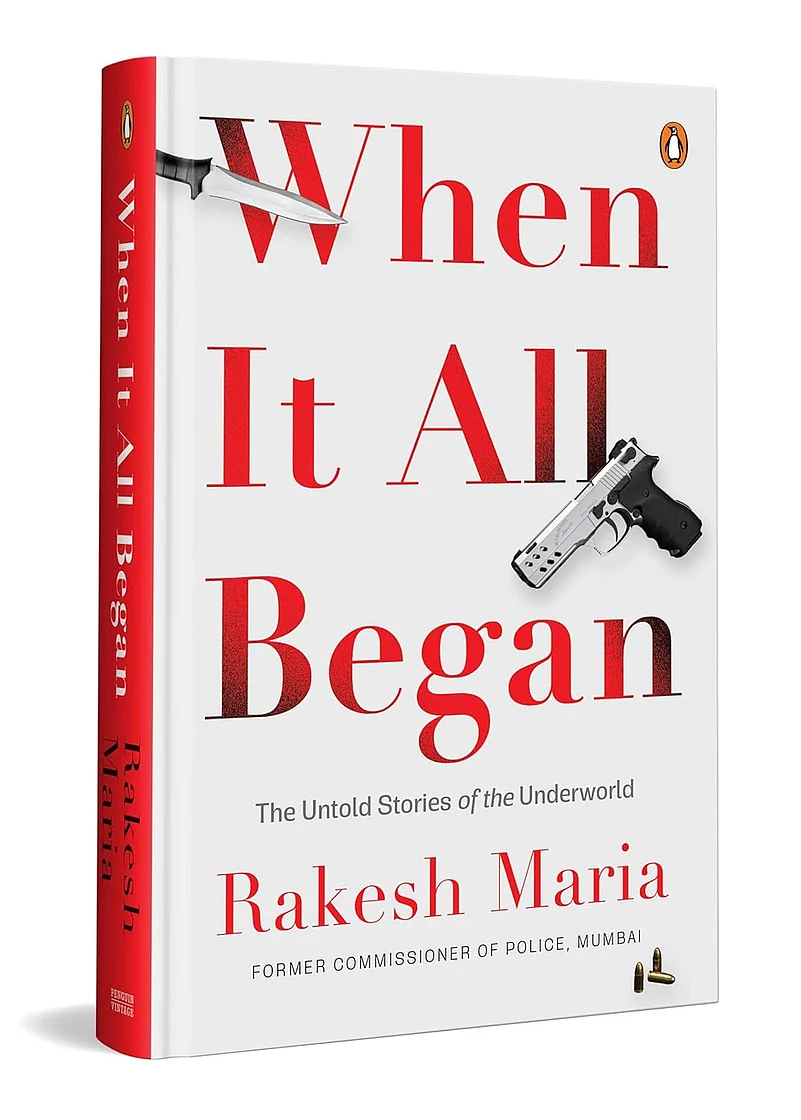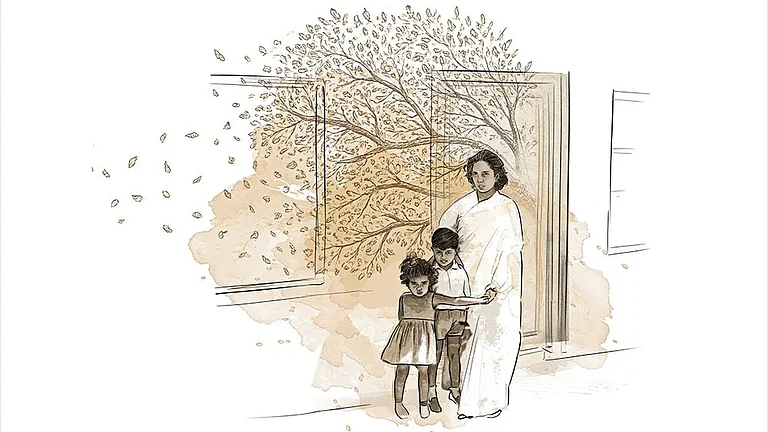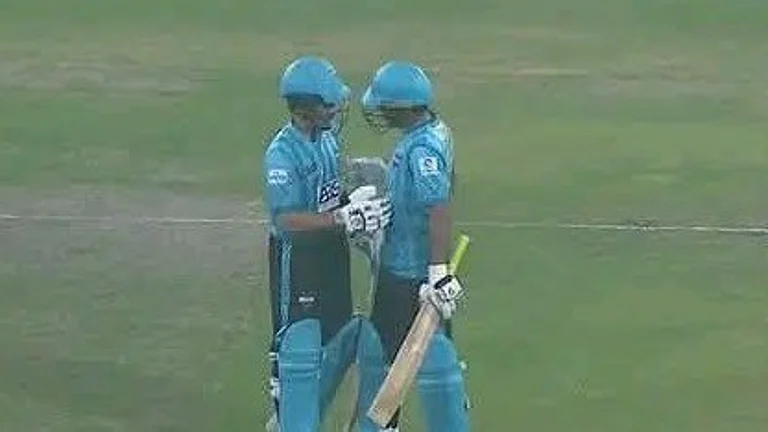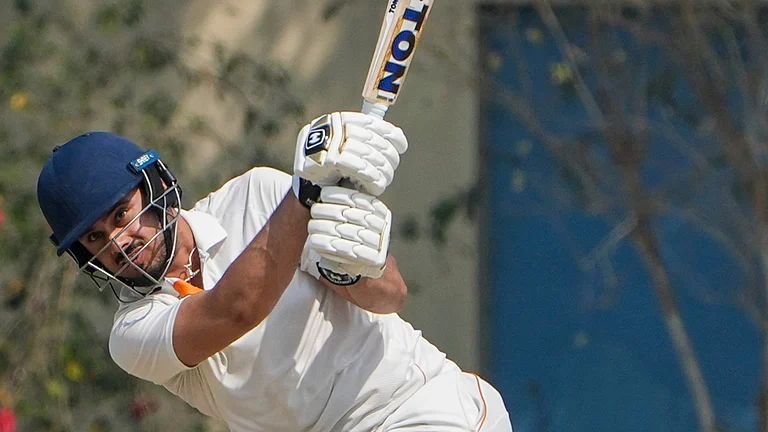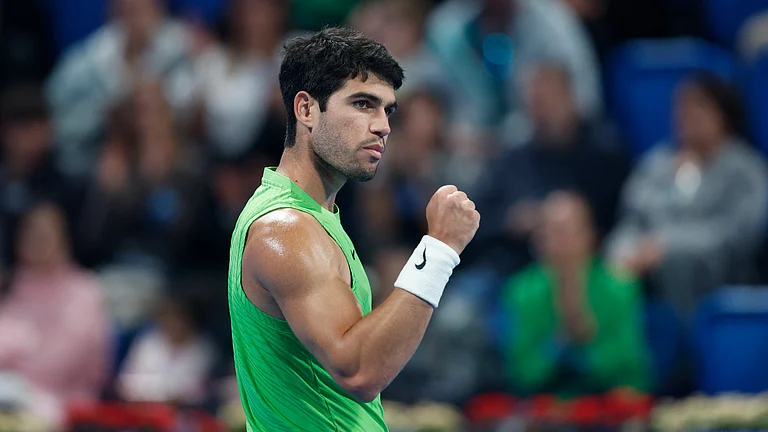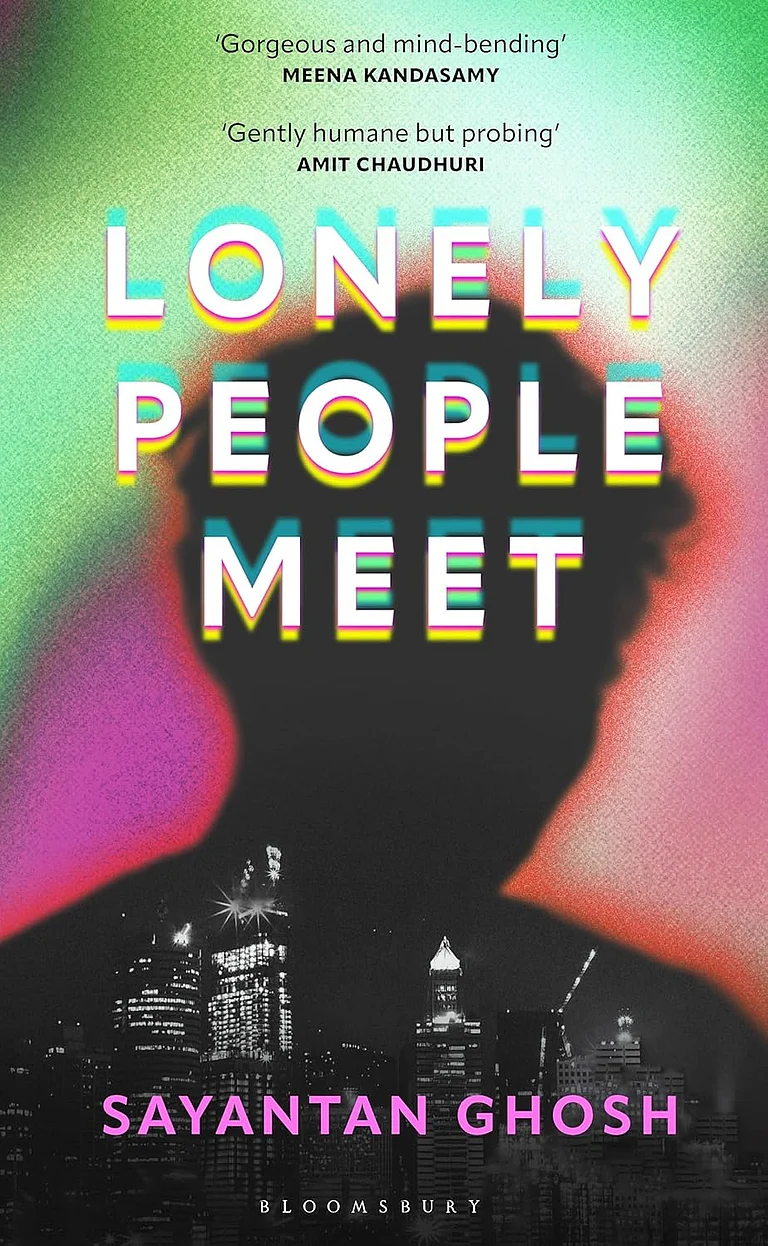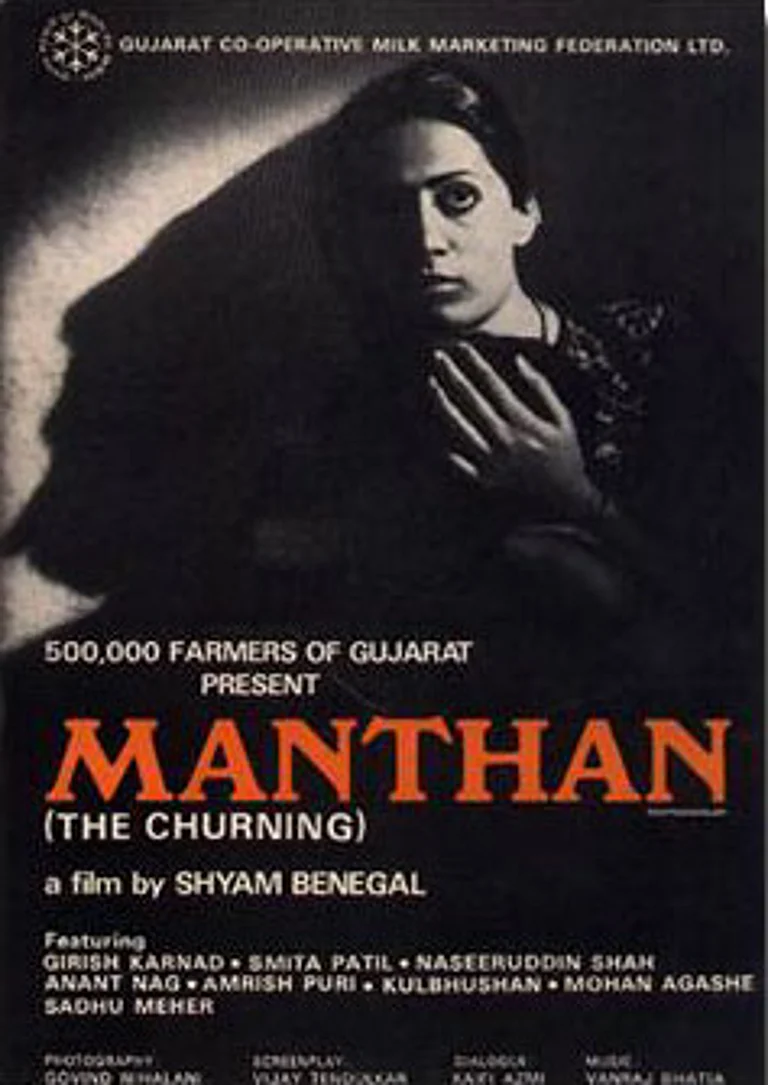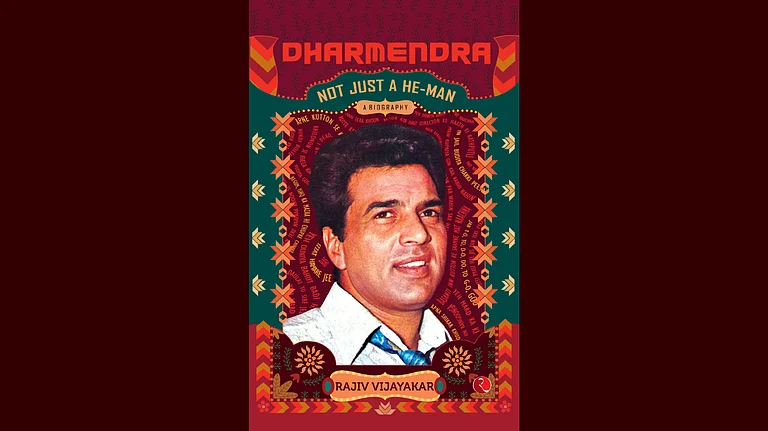
Rakesh Maria recounts Samad Khan’s criminal clout and control from Arthur Road Jail.
The excerpt details the brutal intimidation of witnesses and the mistaken killing of Mr. Jain.
The book highlights encounters with major Mumbai underworld figures and gang rivalries.
It was around 5.30 p.m. on 4 May 1983. Gulam Hussein Mohammed Ramzan was at his home in Noor Baug in Dongri when there was a knock on his door. Two men, Alauddin and Siraj, were at the door with a man they said was their advocate. They had come to inspect the place in connection with the murder case of one Jameel in Bandra, they said. The case was coming up for trial, and Gulam Hussein would be a witness. Then they left, leaving Gulam Hussein spooked. The next day, 5 May 1983, at about 9.45 a.m., one Sayyed Mohsin Sayyed Hassan came to Gulam Hussein’s house with a deadly message. Samad Khan wanted to meet him.
But was he not in jail? Well, he was! In Arthur Road Jail! That’s where you have to meet him! Scared that the man might do something drastic if he did not obey the summons, Gulam Hussein rushed to Arthur Road Jail. At the gate, he told the guards he had come to meet Samad Khan. They appeared to be used to such visitors and looked like they were waiting for him! They immediately let him in and led him to an office room where Samad Khan sat comfortably on a chair, lording over his stooges. At his arrogant best and with choicest abuses, Samad ordered Gulam Hussein to come back with his son Nazir at 2 p.m. to discuss the case of Jameel. Gulam Hussein was relieved to be allowed to leave. He reached his house and found his son Nazir at home.
What next? A police complaint? But the scoundrels could be keeping a watch over them. It could invite disaster. If Samad was so at home in jail, the situation at the police station may not be any different! Around 1.45 p.m., the messenger was at their door again, accompanied by some nastier characters. They ordered the father and son to take out their Jeep. With Nazir at the wheel, all of them reached Arthur Road Jail. As in the morning, the name Samad Khan was like ‘open sesame’. The gate opened immediately, and they were in Samad’s court. He was using even the telephone line in the room, and a jail official was present to take care of all his needs. Samad Khan thundered, ‘Jameel ke khoon ke mamle mein mere khilaf Dongri Police Station ke Pathak ke paas kisne complaint darj ki hai (Who has filed a complaint against me in the Dongri Police Station with Officer Pathak in the matter of Jameel’s murder)?’ Gulam answered that it was perhaps Farooque, the brother of the deceased Jameel, who could have made the complaint. ‘Achha?’ asked a sneering Samad, and added, ‘Farooque ko lao!’ Is that so? Get Farooque, Samad ordered his minions, and they brought Farooque. Samad asked him the same question, and Farooque pointed to Gulam Hussein. Immediately, Samad jumped to his feet and slapped Gulam Hussein hard. Another man joined him. He was Abdul Kunju.
Together, they began punching Gulam Hussein and Nazir, raining blows down upon them. Samad then summoned a jail warden and asked him to get a barber. A barber arrived with his kit, and Samad began directing him to shave Gulam Hussein and Nazir’s hair and moustaches in patches. As the barber obeyed his commands, Samad laughed hysterically and ridiculed the two petrified victims to his heart’s content. The courtiers applauded his sadistic jokes, tickling his sick sense of humour even more. When the barber finished his job, Samad took the razor from his hand and walked up to Nazir.
He held the razor at Nazir’s neck and stared at Gulam Hussein, who was fighting tears, his hands folded in entreaty. A sheaf of papers was thrust under his nose. He was asked to put his signatures wherever they ordered him to, and he did. He was told he was transferring his Jeep to one of Samad’s gang members. The papers he had just signed were vehicle transfer forms. ‘Give me the keys to your Jeep,’ Samad Khan ordered Nazir, who obliged. Samad handed over the keys to a lackey. He would accompany them out. They had to hand over the jeep to him and leave.
Then Samad warned them that this was just a taste of what would follow if they deposed against Samad or went complaining about what had just happened to them. Both the men followed Samad’s instructions and handed the Jeep over to the man who accompanied them out of the jail. On the streets outside, all the passers-by stared at the two shattered men with the strange haircuts. In total despair, they mustered up some courage and decided that they had no choice but to go to the police. Contrary to their fears, their FIR was registered. The Crime Branch stepped in and took charge of the investigation. Identification parades were held, and a chargesheet was filed against seven accused. The trial began, and the defence of the accused was of total denial.
The learned Additional Sessions Judge, Greater Bombay, recorded evidence of fourteen witnesses and concluded that the prosecution had failed to prove the charges framed against the accused beyond reasonable doubt. Negative findings were recorded on all the points for determination. All the accused were acquitted on 26 November 1985. Being aggrieved, the State went into appeal, but by the time it came up for hearing in 2001 in the High Court, most of the accused except one, the jail official, had died. The High Court upheld the judgment of the Sessions Court.
When the incident happened on 5 May 1983, Samad Khan and his associates were in Arthur Road Jail as undertrials in a murder case. Samad was convinced that Gulam Hussein Mohammed Ramzan, a material witness, had complained against him to Dongri Police Station. He had to intimidate Gulam Hussein to ensure he did not pursue the complaint and depose against him. He had done it sitting majestically in the Arthur Road Jail, surrounded by his accomplices and the acquiescent jail wardens. It was a regular feature, not only of Samad’s stay in jail but of all the major gang honchos whenever they were behind bars. Most of them would already have some gangmates inside. If they did not have enough numbers, they would ensure that more gang members surrendered before the police for cases in which they were ‘wanted’ or on some fresh charges and got themselves placed in the same jail.
The jail staff, intimidated or bought over, had to take sides, and carefully manage the balance of power. Going against the gangsters could have disastrous consequences for them. Samad was the most feared gangster in the jail and enjoyed maximum clout. At one point, along with Samad, many deadly gangsters happened to be lodged in the Arthur Road Jail. His sworn enemy Abdul Majid, Dilip Aziz’s son, was there, and so were his friends, Abdul Kunju and Kalia Anthony. Kalia Anthony was a Tamilian from a large Hindu family who had converted to Christianity. A mobster from the Juhu-Santacruz area, he was dark and hefty and had perpetually red eyes. His sheer presence used to instil fear. He had committed brutal murders and was an undertrial in the Arthur Road Jail, from where he ran his extortion racket and recovered protection money from new entrants, creating terror with the help of his associate Ramesh Umesh Varma, also lodged in the jail. Samad and Kalia Anthony took to each other instantly and got on like a house on fire.
There is also a story about Samad, very early on in his illustrious career, hanging fellow inmate, smuggler Mohammad Dossa, upside down in Arthur Road Jail to extort money from him! The Aziz brothers, Hamid and Majid, were continuously looking for an opportunity to kill Samad to avenge their father’s murder. But in the jail, Samad had the upper hand. Their father’s untimely death at the hands of Samad had distanced Hamid and Majid from Karim Lala’s benevolent protection and left them to fend for themselves. They were neither financially savvy, nor had they imbibed their father’s business acumen. Samad, on the other hand, had the financial backing of his father and eldest brother, Abdul Rehman, who controlled a big chunk of Bombay’s narcotics business. The prestige of Karim Lala and his machinery were also solidly with him. With such massive clout, Samad decided it was the most opportune time to kill Majid inside the jail. One day, Majid was deliberately provoked. He had a massive ego and fell into the trap. As expected, he became defiant and aggressive.
As planned, Samad’s men attacked him, and the jail staff, their palms greased by Samad’s side, joined in on the pretext of separating the two groups. Majid received such a severe beating that it damaged one eye permanently. He would have died in the attack had it not been for the unexpected help he received from Ramesh Umesh Varma, Kalia Anthony’s acolyte. Varma was a pleasant-faced young man, soft-spoken, the quiet type. Maybe he felt sorry for Majid, the underdog, or had a reason to leave Kalia Anthony. He stepped into the fight and saved Abdul Majid from his murderous enemies. Majid became permanently indebted to him.
After Majid was released, the first thing he did was get Varma released on bail by arranging a good lawyer. Upon his release, Varma left Kalia Anthony and joined Hamid and Majid. He also converted to Islam and became Sohail. The Aziz brothers helped him set up a video cassette library called Sohail Cassette Palace in Chindhi Galli. He enjoyed watching cassettes of crime-based foreign films and planned moves against his targets that were inspired by those plots. Once, Samad created history—of sorts. He had been brought to the Sessions Court near Kala Ghoda from the jail for the court hearing, after which he was expecting to be released. A police team was all set with a warrant and handcuffs to arrest him in another case as soon as he emerged from the court building. But then, something unexpected happened. Before they could reach him, a speeding car came down the road at full throttle and halted next to Samad with its engine on! The door flew open, and a hand stretched out to grab him. Holding it, Samad jumped into the car, and it sped away before the gaping cops knew what had hit them. The daring driver was Shilpa Zaveri, Samad’s madly loyal sweetheart, ready to take any risk for him!
On 6 September 1983, Amirzada had been killed by David Pardeshi, trained by Samad’s friend Abdul Kunju for Dawood at Bada Rajan’s instance. Thereafter, Abdul Kunju fell out with Bada Rajan and joined hands with the Pathan gang. Under Karim Lala’s instructions, Samad took him to meet Alamzeb in Gujarat. On 30 September 1983, the Pathans got Bada Rajan killed by Sappaliga, who had been selected and trained by Abdul Kunju. The Pathans had again started calling the shots, and the attacks on Rashid Arba and Umar Baxi had followed. Emboldened by the experience gained in committing murders and coming out of jail unscathed, Samad was now running riot, spreading his terror among the business community and successfully evading arrest. He was the only gangster to don a bulletproof jacket and move around with automatic weapons of mass killing, like Kalashnikovs. He took great satisfaction in executing contract killings himself instead of outsourcing them. To evade arrest and rival strikes, he stayed in different houses, where Shilpa would join him to enjoy drinks and drugs together. Some believe Samad had married Shilpa. If so, that had not prevented him from getting betrothed to Nasrin aka Seema, daughter of Habibullah Khan, a Pathan from Indore, to please his family, who were hoping that a stable Pathan girl would reform their son and make him turn over a better leaf than the ones he was turning now.
The police were summoning old Karim Lala for Samad’s crimes. He had to keep assuring them that he was not the moving spirit behind Samad and that Samad was no longer under his control. In December 1983, Samad created havoc when he murdered the wrong man in a case of mistaken identity. Samad had taken supari for killing one Mr Jain, who was supposed to be staying in the five-star Hotel Sea Rock in Bandra. Samad coolly walked up to the receptionist and asked for Jain’s room number in flawless English, weaving a canard that he was a friend of the guest and wanted to surprise him. The poor receptionist fell for the ruse and gave him the room number. Samad was alone. He went up to the room and knocked on the door. A mild mannered man answered the door. ‘Mr Jain?’ Samad asked, and the man said yes because he was Mr Jain. Samad just entered the room and strangled him to death. Then he walked out as if nothing had happened.
Excerpted with permission from Penguinrandomhouse India and Rakesh Maria






